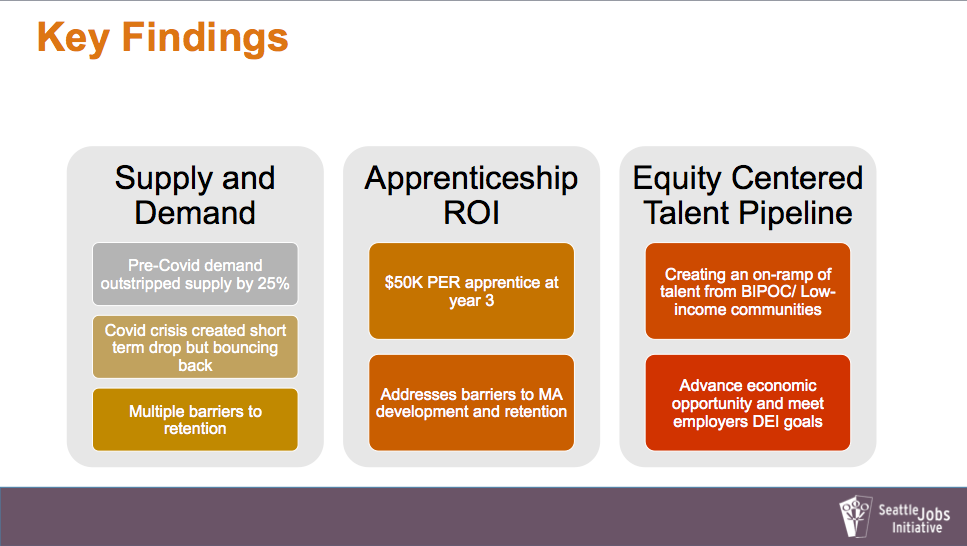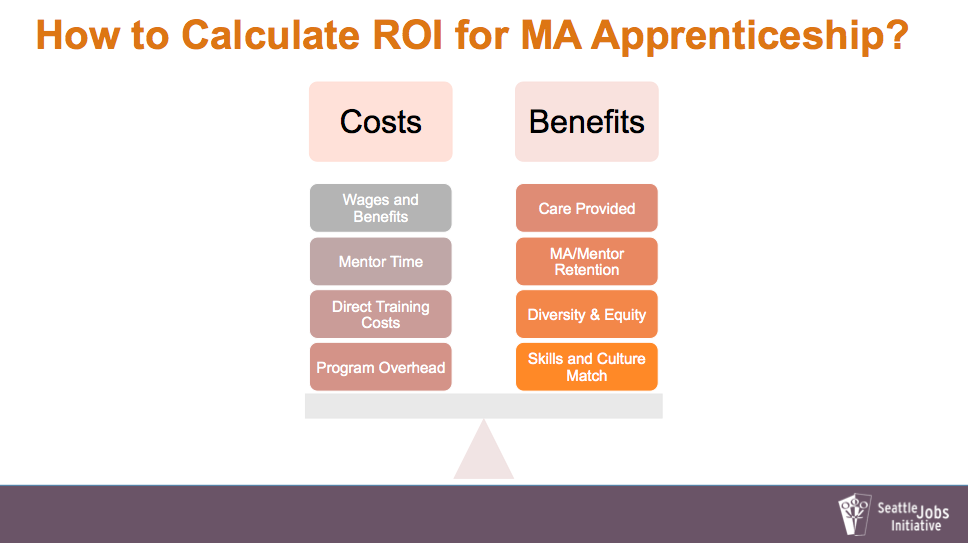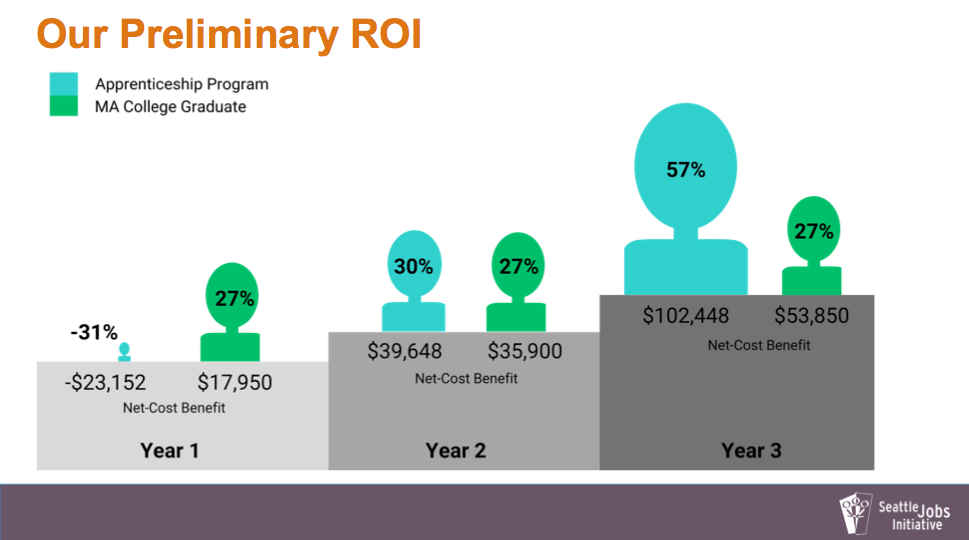The Health Care Apprenticeship Consortium was created to make the benefits of skilled apprenticeship training available for all employers in Washington. We know that apprenticeship is a solution to staffing shortages and a pathway to skilled and engaged talent.
One of the questions we are frequently asked by employers is about the return on investment (ROI) for apprenticeship. Apprenticeship does require an investment up front, but the return of effective and reliable employees is well worth it. Through apprenticeship, employers gain a pathway of skilled workers, lower turnover for apprentices and mentors, skills matching your needs and culture, increased loyalty, and higher productivity.
We spoke with Ryan Davis, Executive Director of the Seattle Jobs Initiative (SJI), about healthcare apprenticeship, the benefits for employers, and calculating the return on investment. In the full video of the interview, Ryan introduces the Seattle Jobs Initiative and then talks about their research around healthcare apprenticeship. We’ve broken the interview down into three sections, discussed below (with links to the videos). Additionally, below you’ll see some images from Seattle Jobs Initiative’s presentation about their research on ROI for Medical Assistant Apprenticeship.

When we talked about the benefits of apprenticeship for employers, Ryan shared that when his team looked at the data, a couple of benefits really stood out: retention of apprentices and that mentors found huge value as well. “We can really attach some ROI to that … retention and churn are key drivers of financial performance,” he added. In addition, apprenticeship allows employers to recruit a much more diverse workforce (which is important but harder to quantify financially).

To calculate the return on investment, the SJI team looked at the costs and benefits and compared hiring a Medical Assistant apprentice on their first day versus a Medical Assistant who graduated from a two-year program at a technical or community college (see graphic below). Because of the costs up front for training, mentoring, and coordination, the academically trained Medical Assistant comes out ahead in the first year. “But by Year Three, those tables turn. That’s because we start to look at the benefits side. Retention is the largest driver of that benefit,” Ryan said. Apprenticeship can help people find their place within a larger organization, learn your culture, and align with your values and mission. He added that it’s important to note that apprentices are still providing value from the beginning as they see patients (generating revenue) and move through their apprenticeship.

Apprenticeship is also a model for an equitable talent pathway. The cost of higher education (tuition, books, living expenses, etc.) prevents many people from being able to access that path. Apprentices earn money while they learn skills. “Apprenticeship takes whole groups of people who feel that higher education is unattainable and closes that aspiration gap,” said Ryan. As a full-time employee, apprentices also have the support of healthcare and other benefits that students may not have. As Ryan said when he introduced SJI, it’s important to partner for equity so that we have a workforce that works for all of us.
The last thing we discussed in the interview is the opportunities for smaller employers. While the administrative requirements of apprenticeship and structural things you have to do could be a challenge on your own, the Health Care Apprenticeship Consortium supports employers every step of the way. We help you hire an apprentice (you can start with just one), identify mentors, create a program that works for you, and evaluate the apprentice along the way. And we’ll share what we’re learning from working with larger employers so that everyone benefits. There’s more work to be done, but we want all employers in the state to be able to access a diverse, equitable, highly-trained and highly-competent workforce.
Make sure to watch the video clips from this interview:
- Benefits of Apprenticeship for Employers
- Apprenticeship as a Model for Equitable Talent Pathway
- Opportunities for Small Employers
February 2021 update: Read the Seattle Jobs Initiative’s report “Ramping Up Medical Assistants in the COVID-19 Recovery: A Case for Registered Apprenticeships” which presents evidence that apprenticeship programs could strongly benefit healthcare providers thanks to a strong return on investment.
